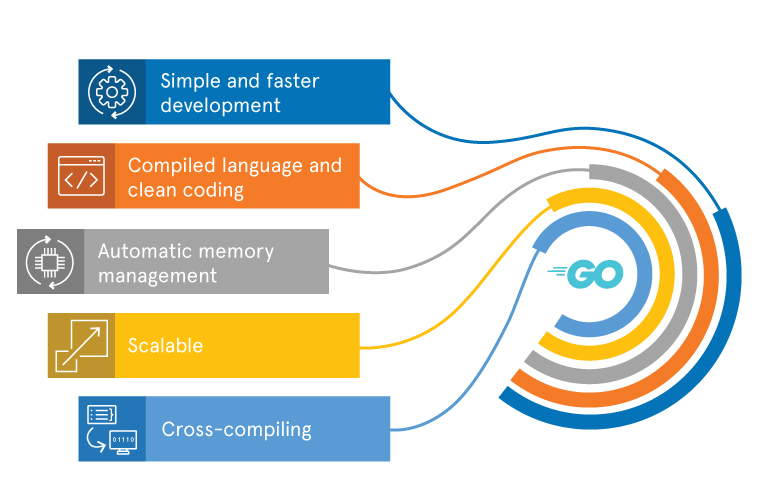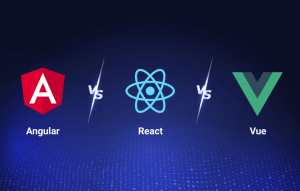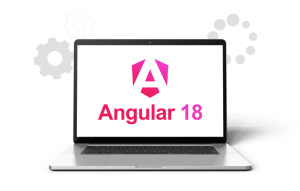Golang is a statically written programming language with high performance and easy operations. One of the main reasons for testing Golang for server-side requirements is the ease and speed it offers in the development process.
It was founded in 1995 and is object-oriented, influenced by languages such as C, Perl and Java. It is interpreted as a scripting language and does not require a compiler like Scala or C + +. The Go programming language has a simple syntax based on functions and a high degree of abstraction from traditional programming languages.
Golang is a complete language in itself, which makes it ideal for developing web and mobile applications.
Let’s take a look at some advantages of using Golang for server-side applications
The programming language Go is concise, communicative and effective. It is comparable to the C programming languages in syntax, semantics, syntax highlighting, language features and functionalities.
Golang is loaded with a memory archive full of tools and a much simpler syntax than Java, which corresponds to most similar aspects. Golang is a language that has the efficiency to handle many types of applications such as web applications and database applications.
Java and Golang can exchange their code and fit into the next application stack, so they can be easily exchanged. These three functions, C, Java and Python, combine to form the most promising language known today for developing scalable web applications.
Golang works completely simultaneously, is more stable and has shorter response times for multiple requests, and hence it has enormous advantages over C + + as well as Java. A Golang server takes only 67 milliseconds to process 500 requests, which is significantly faster than the average response time of a typical Java application. Since Goroutines require only 2 KB of memory, it can behave similar to Java, but with much more flexibility.
We also use Golang development services to develop streaming systems such as Go apps for Kubernetes and Dockers. Go has served us well in developing web applications and APIs that utilize the functionality developed by Go in parallel to support the Microsoft architecture.
Golang is a great tool to build small, functional microservices quickly. One more reason why people prefer using Golang is the fact that it is supported by Google. Besides, we use media to handle image processing tasks and to manage the Golang backend as a programming language.
With the help of this huge community, there is now a huge collection of add-ons and packages, and Google has made Golang open source and is providing tons of free official guides for it. So, there are a lot of options for developers.
Golang development requires a lot of manual configuration and this is the reason why it is not used for error handling. And hence there is a high probability that it will take a lot of time for the programmers.
Golang for backend development
When it comes to selecting a tech stack for backend development, Golang is a more reasonable choice. It is highly scalable and therefore Go for backend is considered the most convenient tool for working with microservices, as its standard library has all the necessary functions.
Go also uses the processor resource system, an advantage that means Golang can effectively manage the allocated memory and help you write reliable apps.
This means that the applications developed with Golang are highly scalable and can handle the number of users you request at the same time.
Golang in open-source applications
Golang has been used in many open source applications, including Docker, which has become a go-to platform for container-based development in recent years. Golang is also known as an open-source programming language. Golang’s development services give you fast development that is also simple. Switching to Golang would be the best choice for developing your web applications and services for your business.
Benefits of preferring Go programming language:
1. Simple and faster development
2. Compiled language that requires clean coding
3. Automatic memory management
4. Scalable
5. Cross-compiling
The final say
Golang is designed to work concurrently and is compatible with almost any application, making it suitable for a wide range of applications, from web applications to mobile apps. It also makes programming concurrency easier by taking advantage of the fact that it takes less time than other programming languages such as Node.js, making it suitable for both large and small applications. To know more about Golang backend development, get in touch with our experts.









